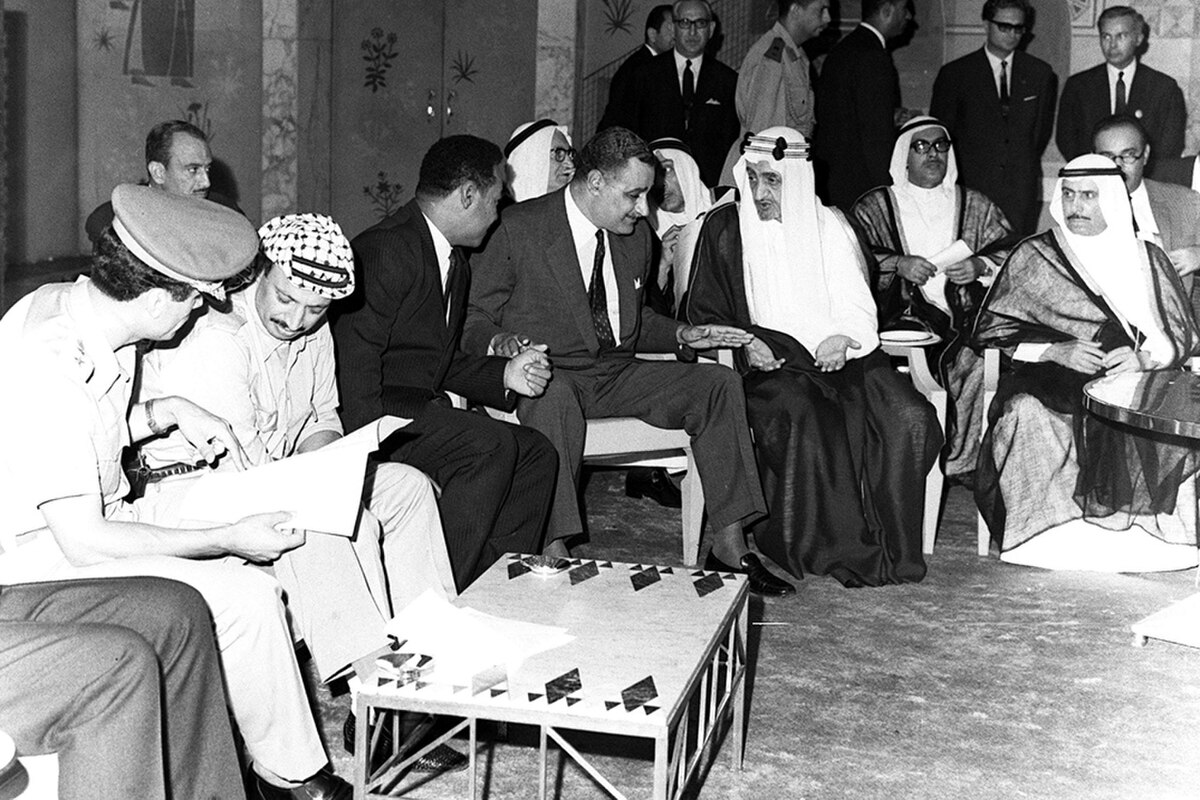
Faisal of Saudi Arabia
Saudi ArabiaAfter King Saud's deposition, King Faisal initiated modernization and reforms, focusing on pan-Islamism, anti-communism, and support for Palestine. He also sought to reduce the influence of religious officials.
From 1962 to 1970, Saudi Arabia faced significant challenges from the Yemen Civil War.[49] The conflict arose between Yemeni royalists and republicans, with Saudi Arabia supporting the royalists against Egyptian-backed republicans. Tensions between Saudi Arabia and Yemen diminished after 1967, following the withdrawal of Egyptian troops from Yemen.
In 1965, Saudi Arabia and Jordan exchanged territories, with Jordan relinquishing a large desert area for a small coastal strip near Aqaba. The Saudi-Kuwaiti neutral zone was divided administratively in 1971, with both countries continuing to equally share its petroleum resources.[48]
While Saudi forces did not engage in the Six-Day War in June 1967, the Saudi government subsequently offered financial support to Egypt, Jordan, and Syria, providing annual subsidies to aid their economies. This assistance was part of Saudi Arabia's broader regional strategy and reflected its position in Middle Eastern politics.[48]
During the 1973 Arab-Israeli war, Saudi Arabia joined the Arab oil boycott against the United States and the Netherlands. As an OPEC member, it was part of the moderate oil price increases starting in 1971. The post-war period saw a significant rise in oil prices, enhancing Saudi Arabia's wealth and global influence.[48]
Saudi Arabia's economy and infrastructure developed with substantial assistance from the United States. This collaboration led to a strong but complex relationship between the two countries. American companies played a crucial role in establishing Saudi's petroleum industry, infrastructure, government modernization, and defense industry.[50]
King Faisal's reign ended with his assassination in 1975 by his nephew, Prince Faisal bin Musa'id.[51]
